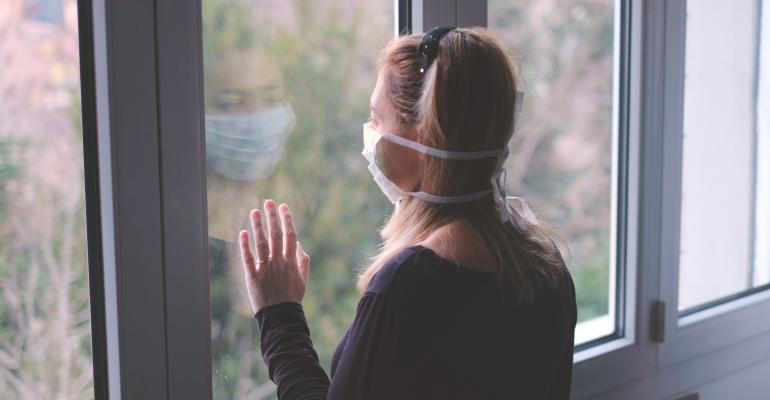 Getty Images
Getty ImagesNow that our communities have seen the rapid spread of novel coronavirus and the resulting COVID-19 disease, many landlords are asking for advice regarding if or how they should be communicating positive cases to other tenants or employees. I have researched the applicable laws and best practices to provide this information that will support landlord clients. The enclosed information should be tailored to your specific situation and you should seek the advice of your counsel to address particular needs.
First, the Center for Disease Control and Prevention (CDC) recommends that all employers and landlords issue a policy that anyone confirmed with the virus, whether hospitalized or not, notify the employer/landlord of such confirmation promptly. This policy should have a contact person and provide for a secure and confidential manner of disclosure. Other policies, such as instituting rigorous cleaning protocols or closing public spaces, should be considered and implemented, with communication outlining the policies to all tenants.
When a landlord receives confirmation, from a tenant, employee, or vendor, of a confirmed case of coronavirus an immediate interview of the sick person should be taken to detail the places he or she has been on the property, as well as the people with whom he or she may have had contact. Immediate measures should be taken to disinfect any places that may harbor the virus. The sick person should be advised to follow his or her doctor's protocols for treatment and should be asked, at a minimum, to self-isolate for 14 days.
Whether the landlord is obligated to notify the remaining tenants of the confirmed case depends on several factors specific to each circumstance. There may be terms in the lease that provide guidance, the ever-changing mandates from the CDC and other health offices may direct certain communications, and the local laws of the jurisdiction will differ in whether they impose certain notice obligations on a landlord. While we cannot definitively determine whether a particular landlord is obligated to notify its remaining tenants, we are recommending that the following notice be made to avoid potential liability related to failure to warn and related claims.
Notice should be given to all residents, employees, and vendors who may have been exposed to the infected person. Notice should be made in multiple ways to ensure that all residents receive the communication; posting on community bulletin boards, mail, and email are appropriate methods. Residents should be told that a resident/employee/vendor has been infected and has been told to follow medical guidance, including self-isolation. Reminders to practice good hygiene and to maintain social distancing should be included, as well as any reminders about closed facilities and limited maintenance schedules. Links to the CDC's website or other official health sites with up-to-date information can be included, but landlords should not provide any type of medical or legal advice. Include the additional measures that the management company is taking to help ensure a safe environment, such as more frequent and rigorous cleaning schedules and decisions regarding the use of shared spaces. Additionally, provide tenants with information about remote rent payment, online payment, or drop boxes that do not require contact. Include the contact person for any questions or concerns and encourage residents to reach out. Advise that you will be providing weekly updates throughout this period to alert residents of any new cases or advisories from the medical community.
Finally, do not include any information that could be used to identify the sick resident. This includes any suggestion of the person's name, gender, family status, unit number, or building. Disclosure of such information is a violation of federal privacy laws and can subject you to liability.
Amanda Spain Wells is an attorney in Baker Donelson's Baton Rouge office and a member of the firm's real estate group. She can be reached at [email protected].





